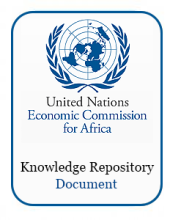Land Library
Welcome to the Land Portal Library. Explore our vast collection of open-access resources (over 74,000) including reports, journal articles, research papers, peer-reviewed publications, legal documents, videos and much more.
/ library resources
Showing items 1 through 9 of 12.The importance of agri-food systems for global sustainability calls for researching and advancing socio-technical transitions towards environmentally friendly models of farming.
Building inclusive societies that reflect the needs of all categories of people within the social spectrum is critical to achieving sustainable development.
Most literature on land tenure in sub-Saharan Africa has presented women as a homogenous group. This study uses evidence from Ghana, Nigeria, and Zimbabwe to show that women have differentiated problems, needs, and statuses in their quest for land access and tenure security.
Mainland Southeast Asia (MSA) has seen sweeping upland land use changes in the past decades, with transition from primarily subsistence shifting cultivation to annual commodity cropping. This transition holds implications for local upland communities and ecosystems.
The informal settlements, townships, temporary camps and other human posts need at least basic services such as potable water, electricity and sanitation. Other services such as food supply, medical aid and shelters are usually arranged in case of disasters and large human migrations.
In Ghana, over the years considerable amount of valuable environmental information (geospatial information included) have been collected in various forms and in different depths by government ministries, departments and agencies.
L'urbanisation croissante, qui est due en parti a l'exode rural, est l'un des facteurs a l'origine de la répartition inégale de la population dans les pays africains.
La planification du développement dans les pays africains était au départ(années 50 - début des années 70) perdue et conçue essentiellement comme une planification macro-économique.
Earlier (1950s - early 1970s) development planning in African countries was essentially perceived and conceived as macro-economic planning.





